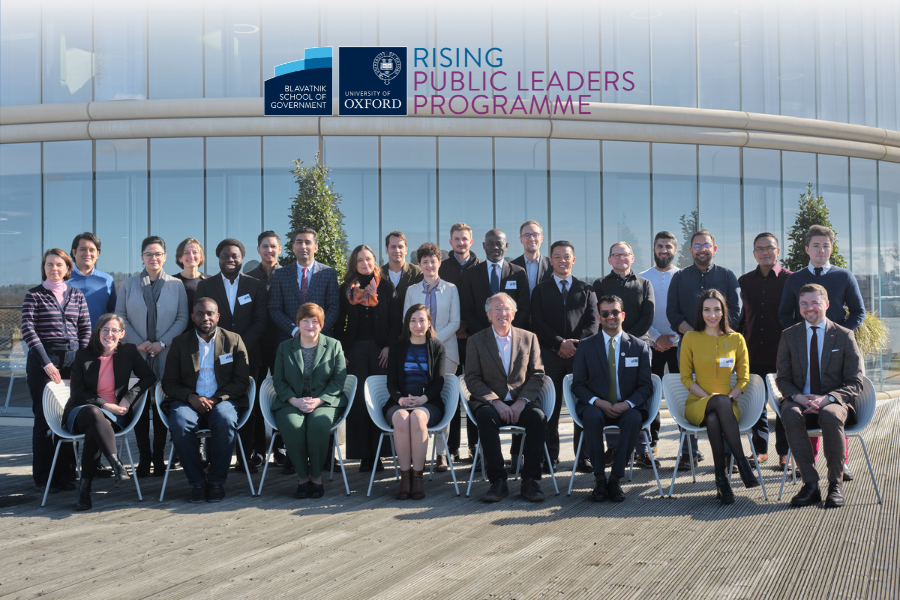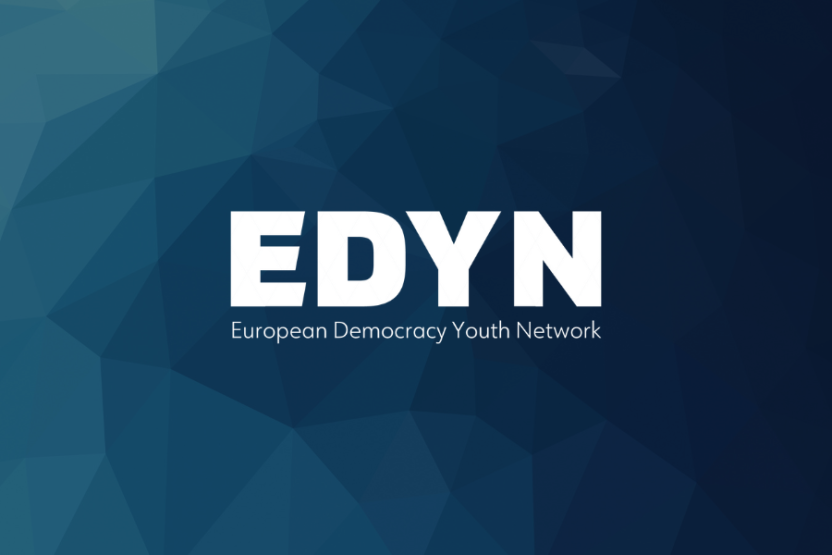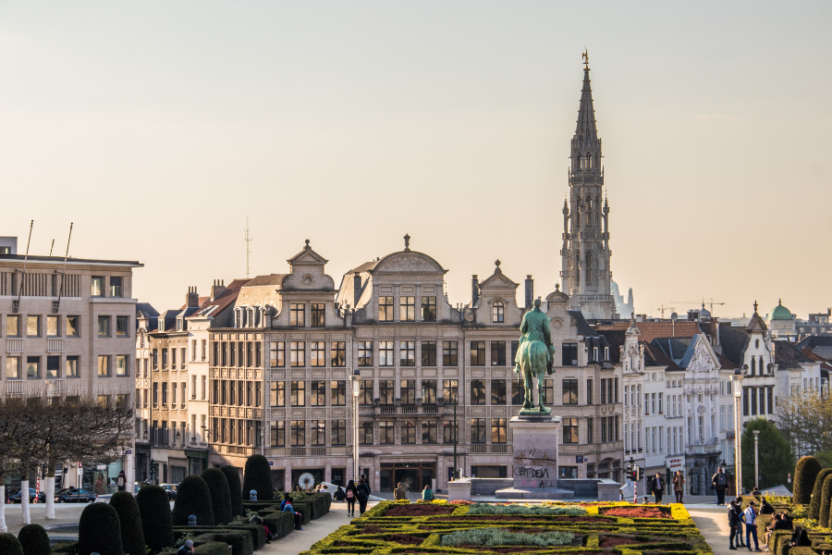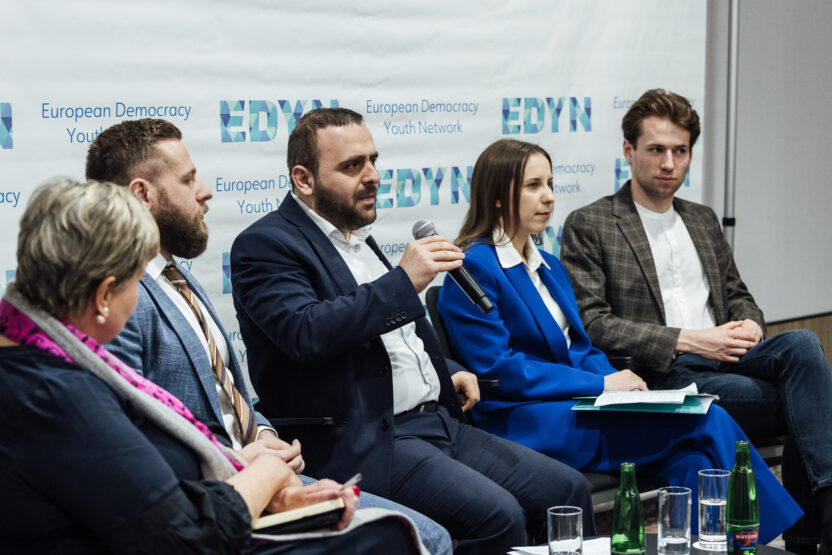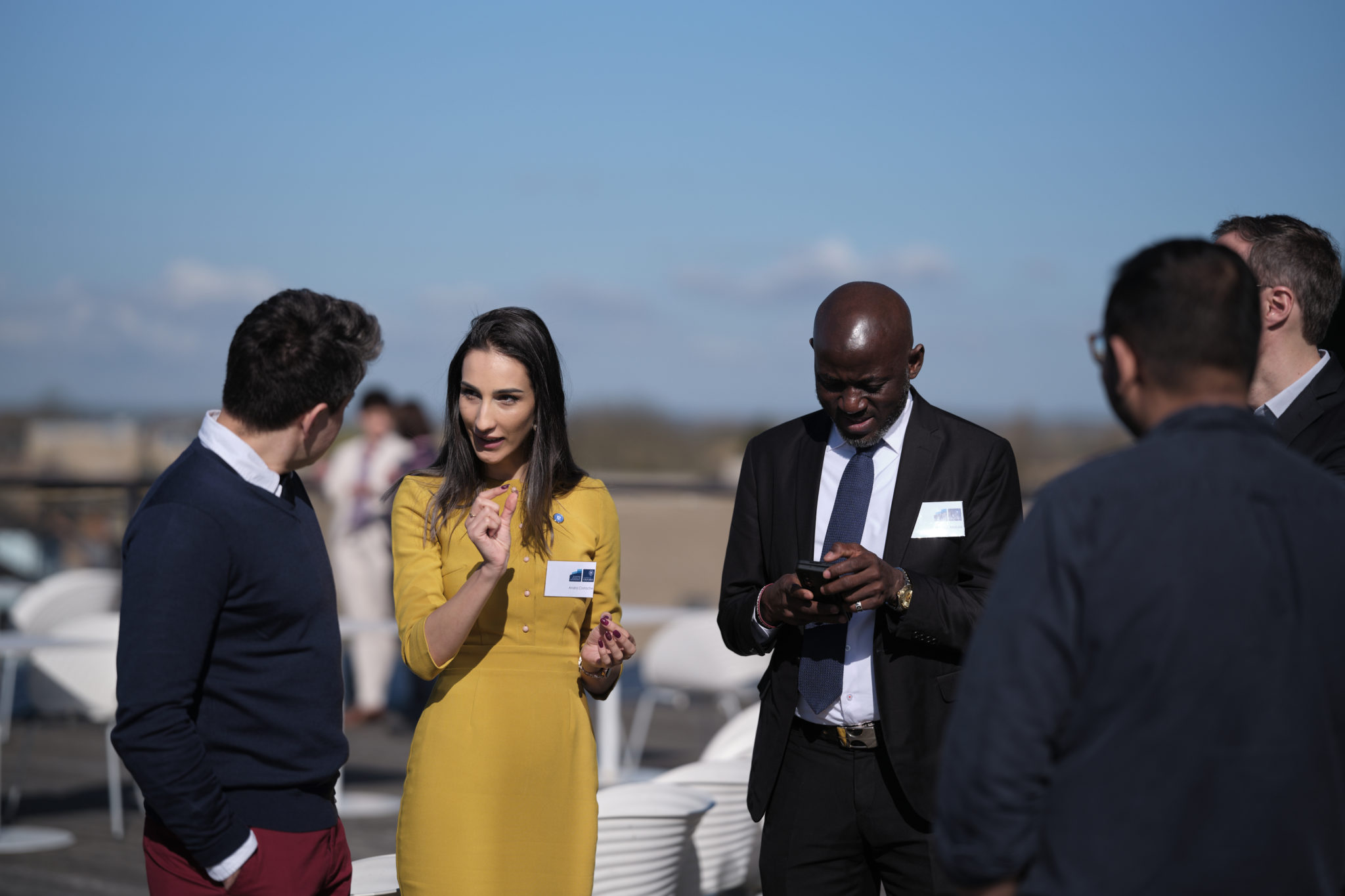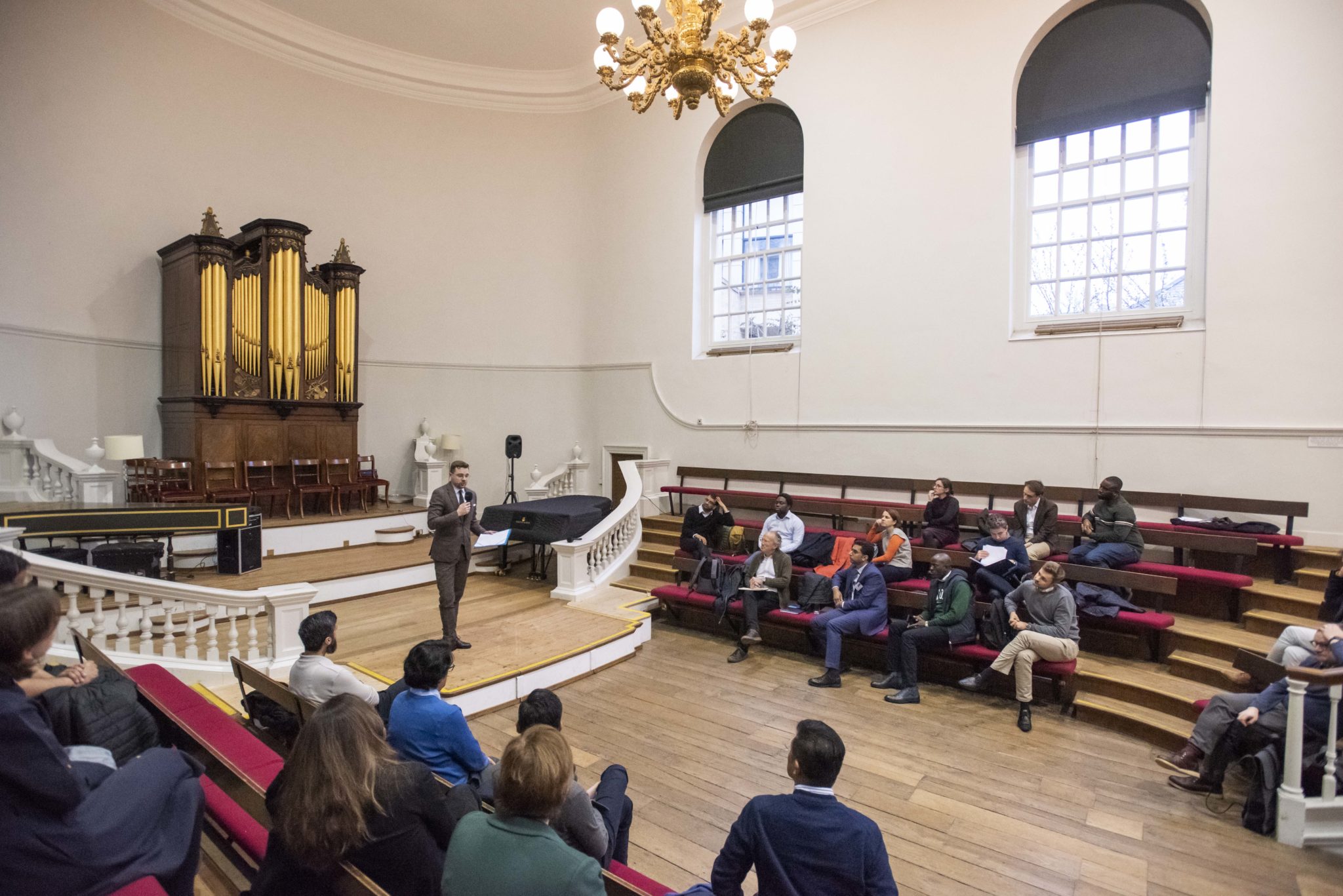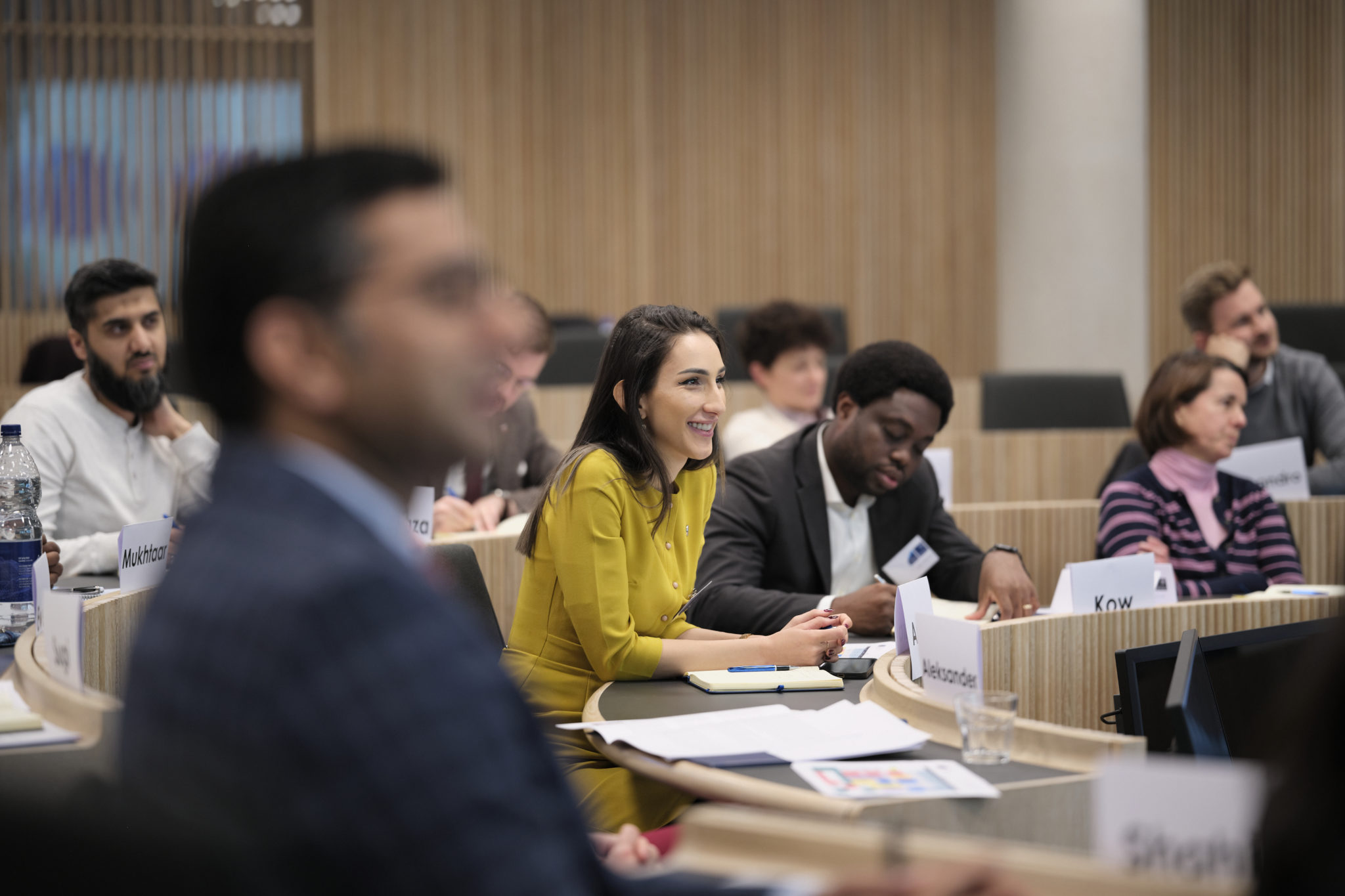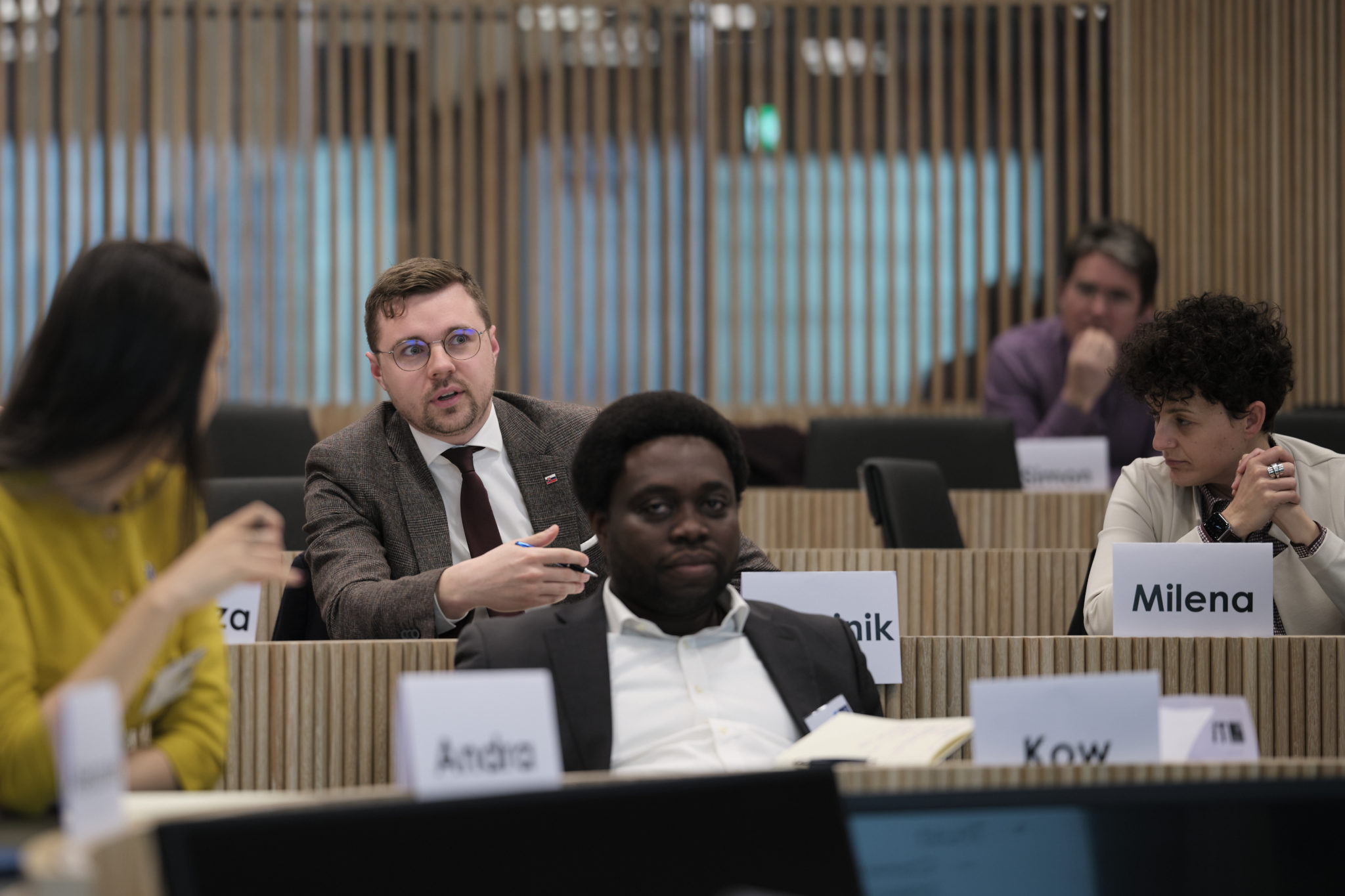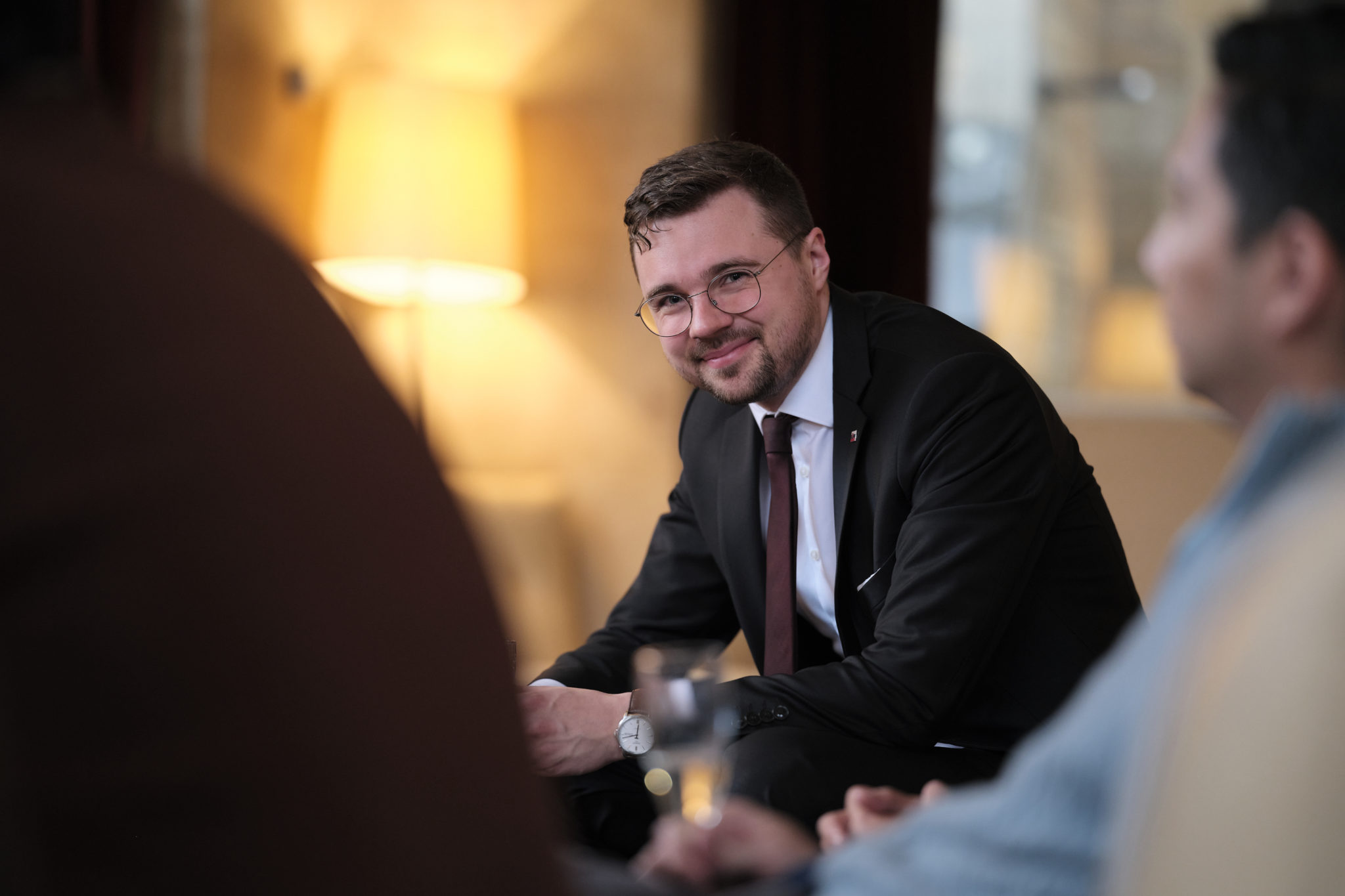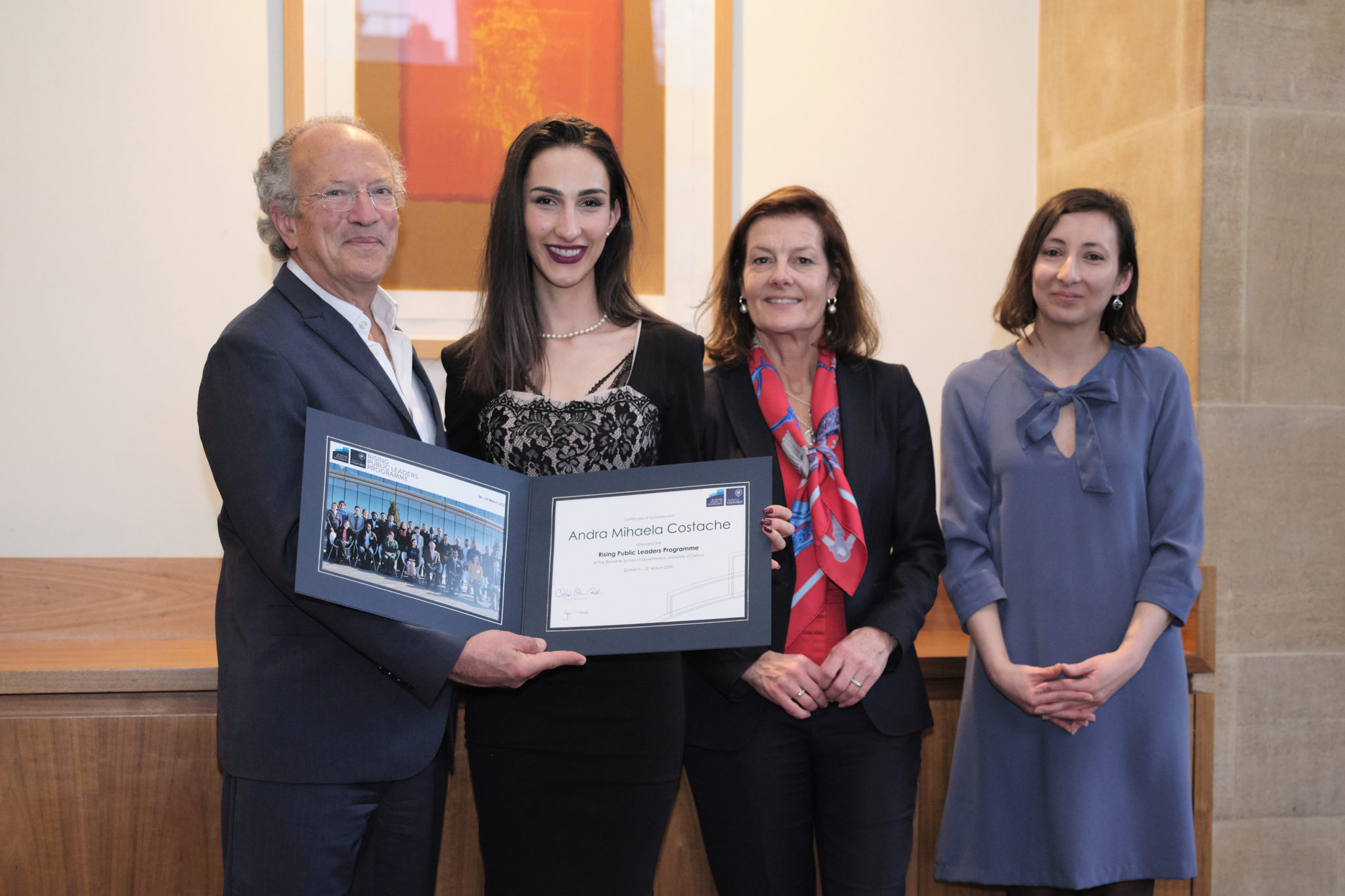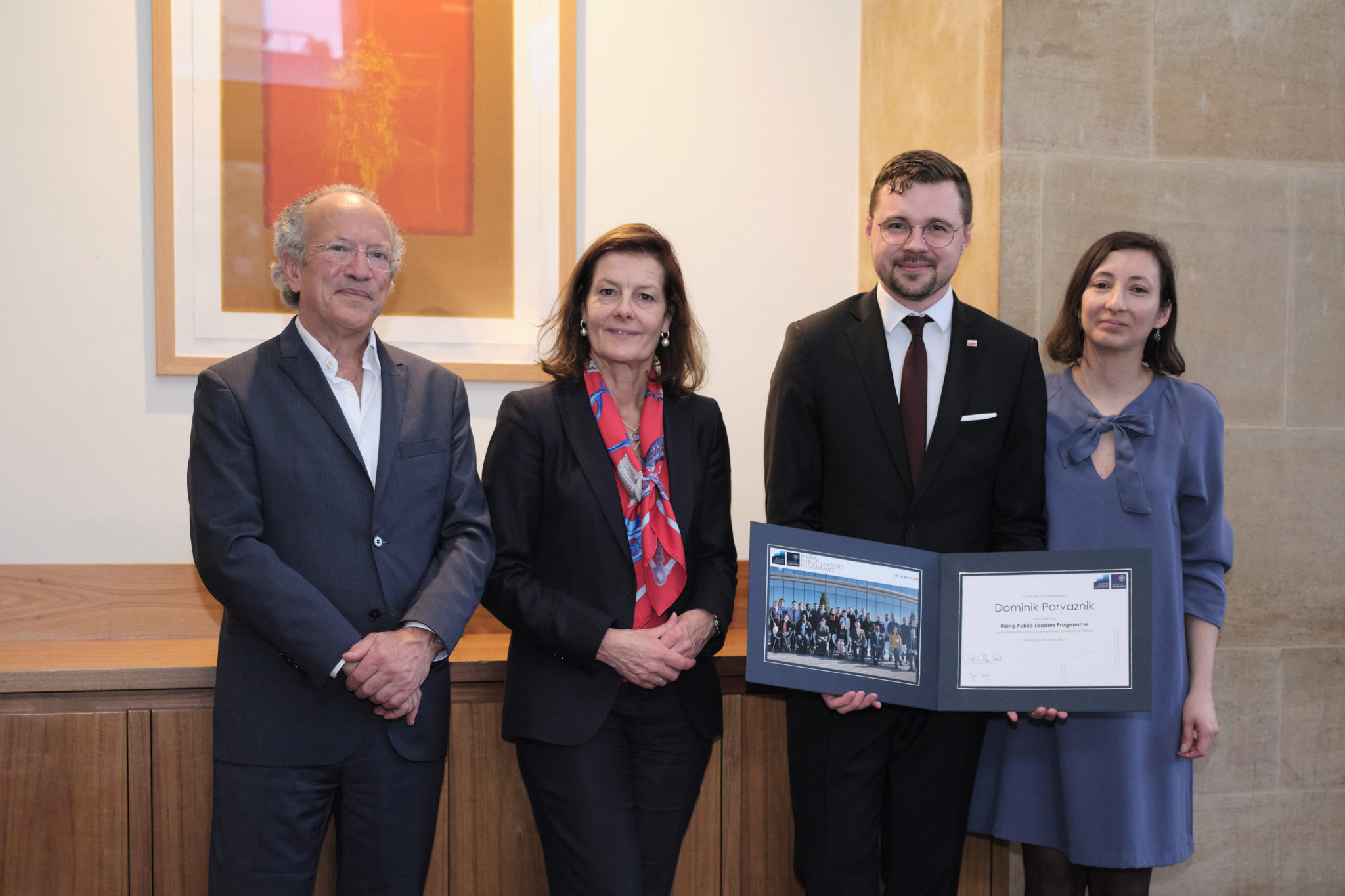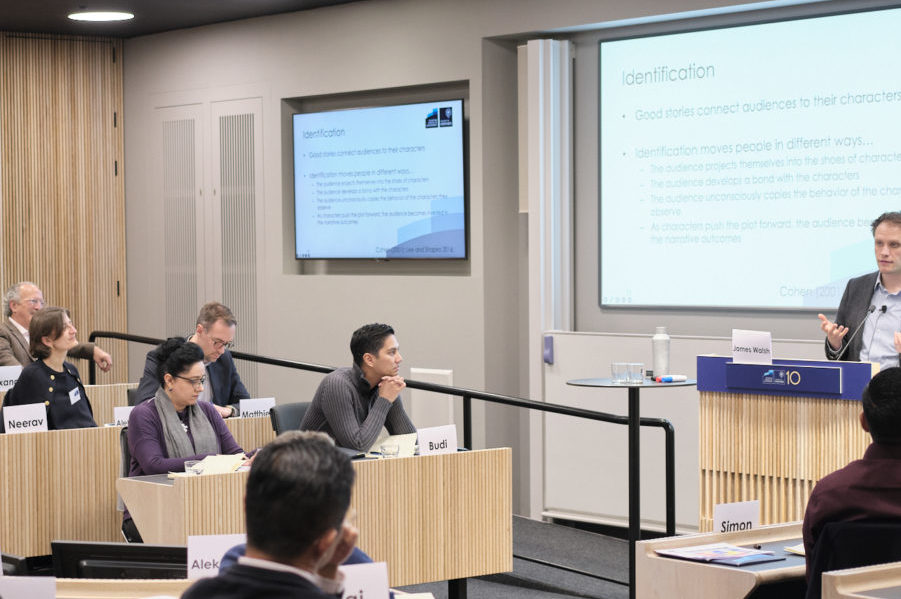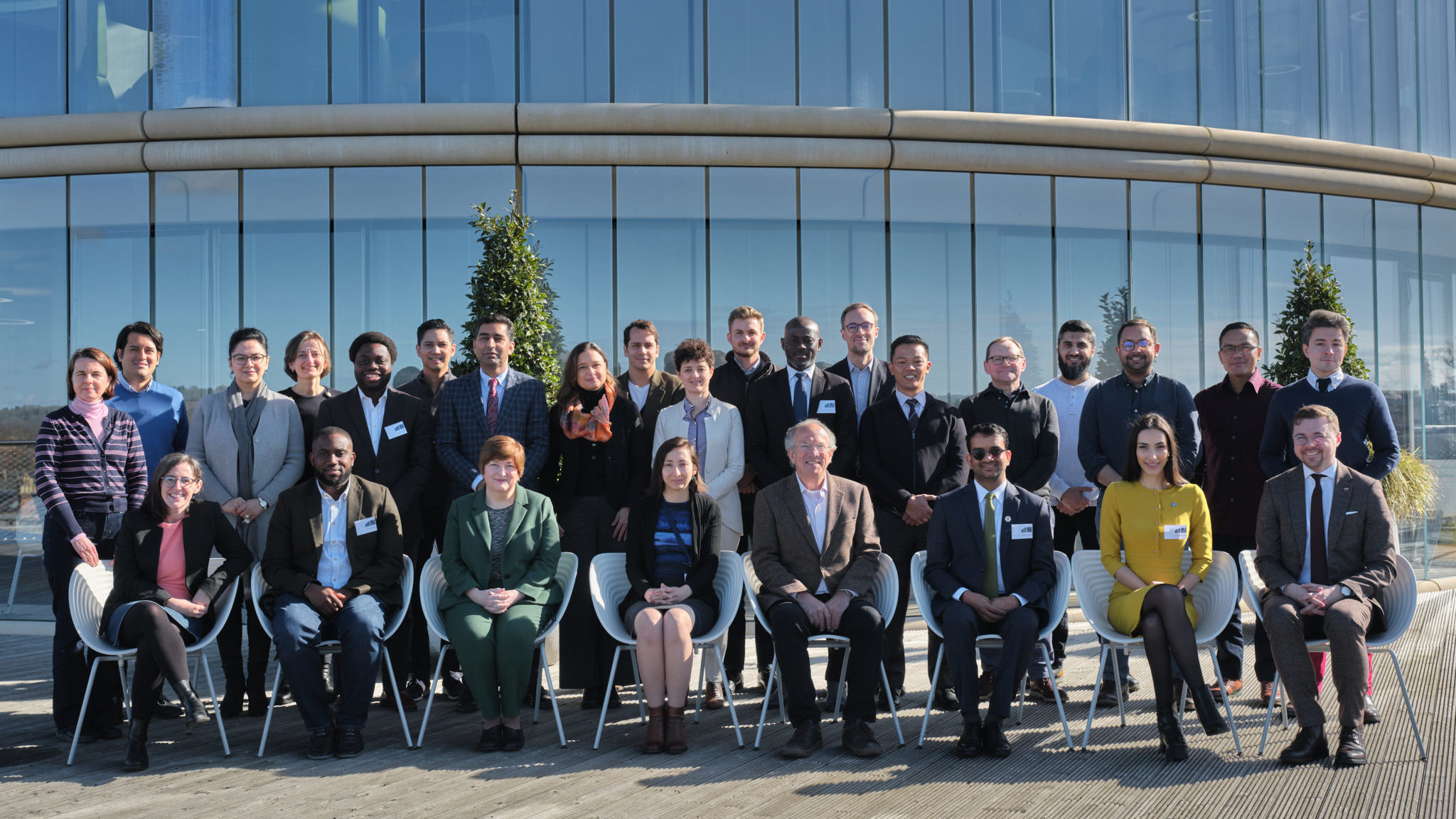We are thrilled to share the inspiring experiences of two of our exceptional members, Andra Mihaela Costache from Romania and Dominik Porvažník from Slovakia, who recently had the opportunity to participate in the prestigious Rising Public Leaders Programme at the Blavatnik School of Government, University of Oxford. Their journey was filled with invaluable insights and knowledge, which we believe will help shape the future of EDYN and beyond. In this blog, we had the opportunity to interview Andra and Dominik and learn more about their experience in the program. So, sit back, and join us as we dive into their journey of growth and learning.
(A short recommendation of the programme from last year’s participants, Jana and Gjorgi can be found here.)
Please tell us about your experience at the Oxford Rising Public Leaders Programme and what you learned there.
Andra:
The program was one hand intellectually stimulating and on another hand practically applicable. It provided me with a range of topics and skills that I can apply in practice.
The program also provided me with a unique intercultural experience and allowed me to network with other professionals in the field, which included senior civil servants, parliamentarians, and advisors to heads of State and United Nations & European Commission staff from 15 countries. Being exposed to different cultural experiences and a wide range of approaches broadened my perspective and understanding of different issues faced by other countries and organizations.
The interactive nature of the program, including the debates and discussions, provided an opportunity to share our own experiences, further enhancing the learning experience and promoting cross-cultural understanding.
Dominik:
When you hear about the University of Oxford, the first thing that pops up is excellent education. However, the Oxford Rising Public Leaders Programme at Blavatnik School of Government is more than the knowledge or skills we have gained. It is about the values and the questions like: Do you have your purpose? Do you have your vision? Above all, it was about the ethics in our everyday work. Focus on integrity in public service was the golden thread that united and gave purpose to all parts of our programme. We make decisions every day, but we need to remember the larger context and impact our institutions have on the perception and trust of citizens.
To what extent do we fulfill our mission, reflect the public’s needs, and address it effectively? What tools should we use to bring the best arguments to the table and implement policies in a multistakeholder environment so that all the segments of society will agree with our proposed reforms?
During the intensive week at Oxford, I had time to think and reflect on all the issues mentioned above and my daily challenges. Thanks to the excellent faculty members and very experienced participants, I had terrific guides who helped me to find answers to these questions.
The most valuable part of the programme was participating in interactive sessions with case studies where we elaborated on and learned how to implement techniques to overcome decision-making biases in teams. One of the program’s cornerstones for personal development was integrity sessions, where the faculty created a safe space for participants to share personal dilemmas and experiences on protecting public interest while preserving integrity.
It was immensely enriching and compelling that the programme provided us not only with knowing how to communicate but also led us to implement the acquired knowledge instantly and to build skills in various fields via practical sessions and assignments as for storytelling sessions where all participants had to prepare a story and argue for policy changes and then reflect how their performance of storytelling can be improved for the subsequent similar sessions.
We also touched upon challenges with new digital technologies and internet governance. We held simulations of international negotiations, which helped me understand the complexity of interests in the international arena and the importance of multilateral and intersectoral coordination for successful norm adoptions. These international settlements would not be possible without a proactive approach and informal discussions with counterparts from different countries. Thanks to this coalition-building, you can bring closer various positions and negotiate with stakeholders as a more robust regional bloc of countries and thus strike a deal that will be broadly accepted by the concerned parties.
What were the program’s most memorable moments or activities, and why did they stand out to you?
Andra:
Having the opportunity to learn and collaborate with other leaders from different countries and sectors was a valuable experience in itself.
The module on integrity in public life is particularly important, as maintaining high ethical standards is a fundamental aspect of public service. By learning about the challenges and best practices related to integrity in public life, I can better understand how to navigate complex ethical issues and ensure that my future actions and decisions are aligned with the public interest.
Dominik:
There were at least three moments that really stood out for me.
First was the storytelling session, where we deep dive into the principles of constructing an engaging story and the impact stories have had for centuries on humanity and decision-making. Stories are our cultural DNA. The majority of the conversation topics we have are stories. This is also a reason why we are drawn to storytellers.
It was an intense AHA moment when I realized that a good story in negotiation would persuade your counterparts to support your position and dramatically reduce their need to counter-argue your proposal.
The second moment was the negotiation simulation we held at Westminster in London, focusing on avoiding biases in decision-making. We were divided into teams and asked to develop proposals for the Prime Minister. We were not unequivocal in the position that the Prime Minister should take; therefore, we have voted upon the stance we will finally take as the team. While this voting process might have looked effective and democratic, it overlooked possible flaws in our thinking, especially the weak points of our arguments, which we ignored.
One of the ways how to reduce this groupthink bias is to choose a couple of members from the team to be the so-called red team (or Devil’s advocates) who will only follow the discussion of the group without expressing their opinions. Still, they must focus and identify every possible weakness of the team’s proposal. After the unit without the “red members” makes their argument, the “reds” will bring to the whole team alternative points of view that might have been missed and question the team’s proposal. Then the team will have to cope with them and address these questions to make their positions as resilient and objective as possible.
Third, and for me the most special one, was how the faculty was helping us to build and promote integrity in public service due to the atmosphere and level of trust the faculty created between dozens of participants who have not known each other before. Every morning we had sessions where we shared our experiences related to challenges with protecting integrity in public service.
This was one the most memorable take away from the Rising Public Leaders Programme. Seeing that you are not alone in the fight for the public interest is incredibly encouraging. Still, hundreds of civil servants worldwide are willing and fighting for fairer, better-led, and better-governed public services. Knowing that you are not alone and have a community of people preserving and promoting the same values will help you keep doing great work and find motivation when you are struggling because one can change the world but cannot do it alone.
How do you feel the Oxford Rising Public Leaders Programme has prepared you for your future public leadership role, and what specific skills or knowledge have you gained that you believe will be most useful to you?
Andra:
I think it’s essential for me as a public leader to continue to engage in ongoing training and development opportunities to stay up to date with the latest trends and best practices in my field.
Overall, the inclusion of debates and interactions on important topics such as managing biases, delivering outcomes that matter to the public, building a culture of integrity, effective communication, creating partnerships, and adapting to changing technology, led by renowned professors and professionals is a valuable aspect that helped me to develop critical skills and perspectives necessary for effective leadership in my current role.
Moreover, during the program, I had the chance to strengthen my ability to use the „the red hat concept,” focusing a lot on the power to listen to arguments from the opposition without rejecting them from the start just because they are different from mine.
In conclusion, this program is one of the best that I ever did in my entire life. It’s transforming and has a really powerful effect on my leadership journey.
Dominik:
Being a leader is a journey where you are called to be always willing to learn new things and be open-minded when you face unpredictable situations and use new methods to solve them. You are not a leader alone; you can become one thanks to knowledge people compounded during the centuries. Moreover, a good leader empowers the team members; thus, they can contribute new ideas and methods to face challenges and develop them further as a team.
We often hear that leaders should have a clear vision and strategy for the team and that leaders need to be results-oriented. But this is not enough anymore. Now more than ever, if you want to inspire others and help the institution to thrive and your team members to grow, you need to be a good coach. You should not micromanage but rather give more responsibility to team members and express interest in and concern for their success and personal well-being. It would help if you raised new leaders who will take responsibility and multiply the effort, promote integrity, and protect values in the institutions but also in society.
The most valuable thing besides all the knowledge we received was that the programme helped us to build a community of people fighting for the same values with whom you can mutually share your challenges. Still, exchange experiences and, above all, encourage each other that you are not alone in the fight for better public service for citizens and the protection of public interest.
Finally, it was the variety of very experienced participants coming from all corners of the world and serving at various institutions that contributed to the multiplication of the knowledge we have gained and forged new friendships which will help us to fulfill the mission we were asked to work on from Lord Simon Wolley, who was one of the special guests during the Rising Public Leaders Programme, and inspired us that: “We have to keep hope alive, but it’s not only hope, it’s also our actions predicated on our values.”
Photo credit: (c) John Cairns
